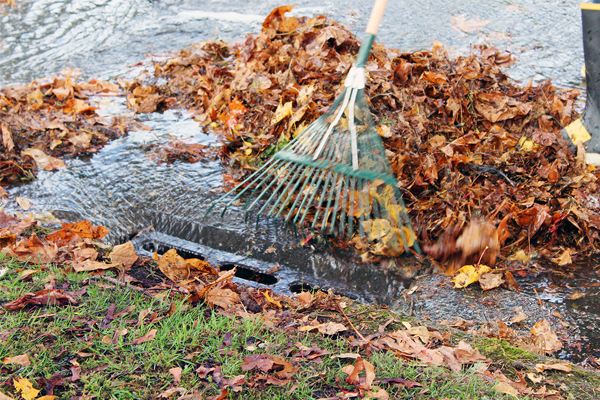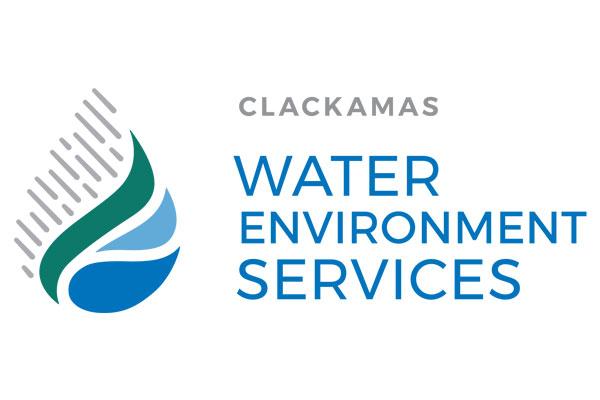We all use the buildings, streets, parking lots and sidewalks that contribute to water pollution. Our Surface Water Management Program protects water quality with programs to prevent, minimize, and reduce pollution in our rivers, streams and wetlands caused by urban stormwater runoff.
Annual Private Property Stormwater System Inspection and Reporting
MS4 Permits | TMDL Documents
Stormwater runoff is the most significant source of water pollution in our state. It washes pollutants into storm drains and drainage ditches, carrying silt, oil, chemicals, trash and pesticides to the nearest creek, stream or wetland. The polluted runoff can harm fish, aquatic life, and threaten our drinking water.
Through watershed protection and planning, WES is taking a long-term approach to protecting the health of our water resources.
What does the Surface Water Management Program do?
- Maintains stormwater facilities, which capture and filter runoff
- Inspects water quality facilities and investigates spills/illicit discharges
- Provides erosion and sediment control requirements and inspections
- Sets stormwater design rules and standards for development projects, reviews projects for adherence to requirements
- Monitors water quality and stream health
- Ensures buffer zones between new development and wetlands/creeks
- Plans and designs water quality, drainage improvement, and flood reduction projects
- Restores degraded water resources and habitats
- Works with partners on pollution prevention, watershed health education, and watershed restoration
Our focus is on improving overall watershed health, focused on four main components:
- Hydrology
Managing stormwater runoff in a manner that minimizes flooding and stream channel degradation - Water Quality
Reducing in-stream contaminants
- Habitat
Promoting the function and restoration of healthy streams and riparian areas - Biology
Maintaining and restoring conditions for diverse aquatic insect, fish and wildlife populations
Capital Improvement Planning: Storm System Master Plan
The Storm System Master Plan (SSMP) provides a flexible framework for storm system infrastructure operations, maintenance, and expansion to improve the quality of surface water. The Known Issues Atlas maps the locations of identified stormwater system issues, such as water quality, flooding, erosion, and maintenance problems.
Storm System Master Plan and current projects
Annual Private Property Stormwater System Inspection and Cleaning
 Private stormwater systems collect, treat and convey stormwater from private property to local waterways or groundwater. Most often these are connected to the public system in the street. These private structures may include storm drains, underground tanks, vaults, manholes, oil/water separators, detention/water quality ponds and swales, etc. The stormwater system in the public street is not the responsibility of the adjacent property owner.
Private stormwater systems collect, treat and convey stormwater from private property to local waterways or groundwater. Most often these are connected to the public system in the street. These private structures may include storm drains, underground tanks, vaults, manholes, oil/water separators, detention/water quality ponds and swales, etc. The stormwater system in the public street is not the responsibility of the adjacent property owner.
Why clean your storm system?
Per Section 4.5.2 of the Rules and Regulations, properties with private stormwater collection and treatment devices must annually inspect, maintain, clean (as needed) and report on this activity to WES. As the property owner, you are responsible for maintaining and cleaning your storm drains to keep the dirt, debris and pollution from roofs, parking lots and vehicles from entering the public stormwater system.
Keeping your business's drains clean may also lower your risk of property damage caused by flooding. Standing water may also seep into asphalt cracks causing a premature failure of the pavement.
Before December 31st of each year, please send WES an annual report on inspection and any maintenance or cleaning performed on your system. Use the online reporting tool or mail your annual stormwater system report information to: Water Environment Services, 150 Beavercreek Road # 430, Oregon City, OR, 97045.
Storm Drain Cleaning Assistance Program (SCAP)
Keeping private property storm drains clean helps reduce flooding and protects the health of our rivers and streams. The Storm Drain Cleaning Assistance Program (SCAP) is offered by WES as part of a multi-agency effort to make it easier for property owners to easily and inexpensively maintain their system.
This service will provide a basic cleaning and does not include additional maintenance or repair work. The vendor is licensed, bonded and insured for providing the cleaning services. WES will not be liable for or provide any guarantee or warranty for the work performed by the vendor. While you are under no obligation to use this vendor, to receive the discount you must sign up to participate.
The vendor performing the storm drain cleaning may note deficiencies within your storm drain system and provide a quote for repair. You may elect to have the work done by the vendor, or obtain additional quotes for cost comparisons.
For questions about participating or assistance regarding the maintenance of private drainage systems, contact wes-stormdrains@clackamas.us
Municipal Separate Storm Sewer System (MS4) Permit
The Oregon Department of Environmental Quality mandates actions intended to improve municipal stormwater quality through its MS4 permit program.
MS4 Permits
MS4 Permit Annual Reports
DEQ requires WES to submit an annual report describing what activities were completed to comply with our MS4 permit.
- 2024–2025 Annual Report
- 2023–2024 Annual Report
- 2022–2023 Annual Report
- 2021–2022 Annual Report
- 2020–2021 Annual Report
Total Maximum Daily Load (TMDL) Documents
A TMDL is the maximum amount of a pollutant allowed to enter a waterbody so that the waterbody will meet water quality standards for that particular pollutant. A TMDL specifies the amount of pollutant reduction needed from all sources of the pollutant so that the water body will achieve compliance with water quality standards.
The Non-Point Source TMDL Implementation Plan details the actions which will be taken to achieve the necessary pollutant reductions.
- 2024-25 TMDL Annual Report
- Non-point Source Total Maximum Daily Load Implementation Plan for the Tualatin, Willamette, Molalla-Pudding and Sandy River Watersheds
- Willamette River Report
- Tualatin River Report
Monitoring
We conduct a long-term monitoring program to evaluate stream health in our surface water management district. The geomorphic monitoring program began in 2009, and the macroinvertebrate monitoring in 2002.
Geomorphic monitoring reveals the impacts from hydromodification, the change in stream habitat caused by urban runoff. Macroinvertebrate monitoring indicates the impacts on stream biology (aquatic insects). This information helps WES to prioritize its management efforts.
Macroinvertebrate/Geomorphic survey results
- Benthic Macroinvertebrate & Geomorphological Monitoring Full Report (2025)
- Streams Sheets (2025)
- Monitoring in Kellogg-Mt Scott Watersheds
US Geological Survey monitoring
In 2013, the U.S. Geological Survey conducted a study of insecticides in streams within urban Clackamas County. You can read about the study by clicking below.
 Translate
Translate







